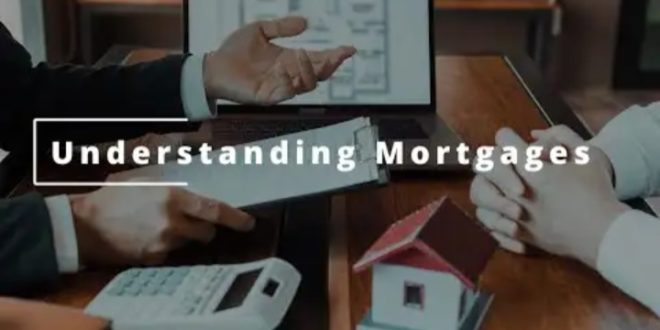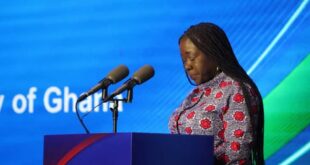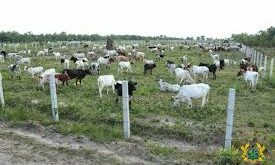Mortgage, also called, Home Loan is a financial arrangement or a legal agreement by which a lender lends money at interest in exchange for taking title of the borrower’s landed property as collateral, with the condition that the conveyance of title becomes void upon the full repayment of the loan. A mortgage, unlike personal loan, is for a long term of up to 30 years or more and the amount that could be borrowed under a mortgage contract is normally significantly higher than under a personal loan contract mainly because a mortgage is a secured form of lending. This makes mortgage an ideal source of finance for the acquisition, construction, and improvement or modification of real estate both for residential and commercial purposes.
The Mortgage Process and Products
In Ghana, residential mortgages have been the core business of banks such as First National Bank Ghana (inherited from the erstwhile Ghana Home Loans or GHL Bank) and Republic Bank Ghana, with Republic Bank being the pioneers of mortgage business in Ghana. However, in recent times banks such as Stanbic Bank, Cal Bank, Fidelity Bank, and others have started offering mortgage products to their customers. The most common mortgage products offered by banks in Ghana include Home Purchase Mortgage, Home Construction/Completion, Land Purchase, Equity Release/Home Improvement and Refinance.
The Home Purchase Mortgage is intended to help borrowers purchase residential properties. The borrower would be required to first identify a suitable house according to location and budget from a developer and obtain an offer letter indicating the willingness of the developer to sell to the buyer and the price, type and location of the property and then approach the bank for the loan. Mortgage banks also give Home Construction/Completion mortgages for the purpose of constructing a house from scratch or completing a house that has already been started where the funds is disbursed in tranches, against the bill of quantities submitted by the borrower, towards the completion of the property. There are Equity Release and Home Improvement mortgages available for customers to take up a mortgage loan for any purpose against their already existing residential properties. Borrowers who have existing mortgages within the banking sector can easily switch from one bank to another under the Refinance product to benefit from reduced lending rates and exceptional customer service that exists elsewhere. It is worth mentioning that these mortgage products could have several variants under them depending on the specific bank. For instance, First National Bank, being the mortgage leaders in Ghana, have some unique mortgage variants including the 100% Home Purchase variant where the bank finances the full price of the property without the borrower having to make any form of down payment or equity contribution towards the purchase of the house. FNBG also have the award-winning Save-To-Own (STO) mortgage product specifically tailored for the self-employed applicants who may struggle to provide the required evidence of income in the form of audited financials and bank statements to enable them to qualify for a mortgage. These self-employed borrowers would be required to save an amount equivalent to their projected repayment on an estimated mortgage amount for up to a maximum of two years based on the success of which they qualify for a mortgage.
Unlike in the advanced countries where mortgages can be granted for 30 years and above, mortgages in Ghana are generally given for a term of 5 years to 20 years and for both resident and non-resident applicants irrespective of nationality. Applicants could take a mortgage in Ghana Cedis (GHS) or United States Dollars (USD), with the USD facilities being predominant due to the level of interest rate hovering around 11 percent to 13 percent as against the GHS mortgages which are priced at GRR (currently 27.89 percent as of July 2023) plus a margin of 5 to 10 percent depending on the bank, resulting in a final lending rate in excess of 35%. The currency preference is mostly the lender’s decision based on customer currency of earnings or guidelines given to it by the Bank of Ghana, although borrowers can sometimes make a choice. The lending rates being offered by banks are either fixed or variable. Variable loans allow lenders to make adjustment to the interest rates from time to time when components such as inflation, Ghana Reference Rate (GRR), cost of funds etc. change. With fixed rates, loan repayment amounts remain fixed throughout the entire life of the loan, hence making fixed rates slightly higher than the variable ones. Most banks use the amortization schedule for the determination of loan repayment schedules, and this means that customers are charged a portion of interest and principal monthly for the entire tenor of the loan until the loan is fully paid-off, even though there is the opportunity for early settlement with prior notice at a paltry charge of 0.25% of the amount prepaid.
Mortgages are given to persons who earn regular income, both salaried workers and the self-employed. The loan affordability is determined by three key parameters which are the Loan-To-Value (LTV) ratio which is the ratio of the loan amount to the price of the property, Repayment-To-Income (RTI) ratio which is the ratio of the borrowers income to be used for the monthly repayment of the mortgage and Debt-To-Income (DTI) ratio which is the percentage of the borrowers income that goes towards settling monthly repayments on all their existing obligations. Just like personal loans in Ghana, the RTI is between 40 to 50 percent of the borrower’s monthly income and this means that only up to 40 to 50 percent of the borrowers’ income can be used as monthly repayment. The qualifying amount will typically be subject to an LTV ratio of 80%, which means the bank will finance only up to 80% of the property price and the customer would have to raise a deposit of up to 20% for home or land purchase transactions although there is the possibility of 100% financing. The bank will then approve the loan and issue a facility letter to the customer which will confirm the approval of the bank to extend the mortgage and the terms of the approved loan etc.
The facility letter will specify the applicable closing costs to be paid upfront by the borrower comprising of application fee which is normally a percentage of the approved loan amount and a deposit towards registration of mortgage and title of the collateral. The bank will proceed to conduct some due diligence on the property and its vendor to ascertain if the vendor is the bonafide owner of the property, has the right to sell the property and whether the title documents covering the property is registrable. The due diligences may include valuation of the collateral by an independent valuer to confirm if the property is worth the price quoted by the vendor, survey by the Survey and Mapping Division of the Lands Commission to confirm if the site plan covering the property conforms to the GPS coordinates on the ground as well as a consolidated search from the Lands Commission to confirm the records at the Lands Commission pertaining to ownership of the subject property. Based on the outcome of the reports from the Lands Commission, a legal opinion on the transaction will be sought from the bank’s external Lawyers as to whether it is safe for the bank to lend before the bank will proceed to sign a mortgage agreement with the customer to close the transaction and disburse. The mortgage agreement is a legally binding contract outlining the terms and conditions of a mortgage loan between a lender and borrowers. Once the paperwork of the mortgage is done and the mortgage is signed, closed, and disbursed, ownership of the house is now in the hands of the borrower/buyer and that the borrower can move in to occupy the property whiles the mortgage is being serviced without any interference from the bank. There are many inherent risk factors associated with mortgage financing especially due to its long-term nature. For this reason, lenders undertake risk mitigation measures by transferring part of the risks to insurance companies in the form of property or hazard insurance to cover the collateral in terms of destruction by fire or natural disaster, and mortgage protection life assurance policy in case of death or permeant disability suffered by the borrower post disbursement, which is optional and not compulsory for some of the mortgage banks.
Post Disbursement
After the disbursement of the mortgage, the repayment phase begins where customers are expected to repay both interest and principal until the loan is fully paid-off. Banks have a lot of remedies available to them as enshrined in the Home Mortgage Finance Act, 2008 (Act 770) and the Borrowers and Lenders Act, 2008 (Act 773) to enable them enforce repayment. The remedies for default by borrowers include foreclosure which will mean that banks will dispose off the collateral and use the proceeds to settle the outstanding mortgage balance. There are other flexible repayment options to enable delinquent customers to rectify their default situation without having to go through the foreclosure process. These may include payment plans, payment holidays, deferment, restructure, loan modifications, tenor extension, moratoriums etc
DETAILS OF THE WRITER
Name:Benedict Andoh Agyare
Background:Mortgage Specialist, MA, Economic Policy Management (EPM), Chartered Banker.
Contact:+233241221555
Email:Baagyare@gmail.com
 Home Of Ghana News Ghana News, Entertainment And More
Home Of Ghana News Ghana News, Entertainment And More





